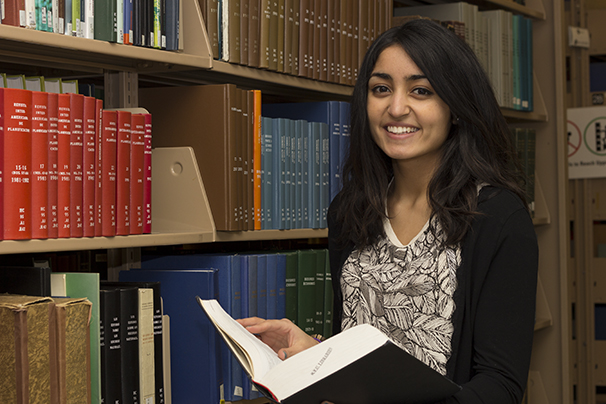
Last year, the words selfie, emoji and twerk were among those added to Oxford’s Online Dictionary. This year, CAS freshman Monica Mahal and her partner Sarah Decker, a freshman at Bucknell University, are trying to have the word “upstander” added. The word refers to a person who chooses to take positive action in the face of injustice in society or in situations where individuals need assistance.
“For over a decade, [UN] Ambassador [Samantha] Power has spoken and written endlessly about the importance of encouraging people to act as ‘upstanders,’” Mahal said.
Mahal and Decker were inspired to get dictionary recognition for “upstander” after using it during anti-bullying efforts in their high school.
“We were active in our high school’s diversity club and worked to encourage students to evoke the ‘upstander’ out of them,” Mahal said. “We noticed how the word ‘upstander’ stood out on Microsoft Word with that distinct red squiggly line which brought attention to the fact that upstander is not defined. Since that realization, we have been inspired to change that.”
Mahal said she believes their efforts fit well within the NYU community and that the university’s mission of educating their students goes hand in hand with embracing the role of an upstander.
“NYU’s curriculum prepares its students to become global citizens and erases the line between ‘us’ and ‘them,’” said Mahal. “At this university, situated in a cosmopolitan hub, we learn to embrace our differences and work towards building better global community with the skills we develop.”
Mahal and Decker launched a petition on change.org that has collected almost 300 signatures. A word is added to the dictionary when it receives significant usage and coverage in publications. Among the signatories was Steinhardt freshman Maggie Drummond.
“I’ve never been one to get too involved in these kinds of campaigns, but ‘upstander’ stood out to me,” Drummond said. “I was bullied when I was younger and when I grew out of that phase in my life I would sometimes remain silent when others were bullied out of relief that it wasn’t me being targeted. I’ve always regretted my role in those scenarios as a bystander. Bystander is a word, but ‘upstander’ is not, and I think that sends a negative message.”
This is not the first time an NYU student has used a change.org petition. In 2012, Gallatin junior Hillary Dworkoski launched a change.org petition to stop NYU from serving Chik-fil-A. Though Chik-fil-A is still on campus, the petition amassed over 18,000 signatures.
CAS freshman Jan-Louise Ileto, who signed the petition, said the use of change.org can bring attention to lesser-known causes.
“Although the outcome on change.org might not be the outcome the original petitioner wishes for, the publicity and the viewers that are reached allow the movement to be heard,” Ileto said. “It brings the attention to things or problems that need our attention and action.”
Though many of the petitions found on change.org are rooted in political beliefs and campaigns, Mahal says that there are no political components to the upstander petition.
“Some of the response has been categorizing this project as ‘liberal propaganda,’ she said. “My partner and I are from two opposite sides of the political spectrum and have worked together without problems for years.”
Those who support the petition seem to agree that the movement is free from political ties.
“I think we can all agree that bullying is something we should try and eradicate,” Drummond said. “It is truly a worthy cause and has no downsides.”
Bailey Evans is a staff writer. Email her at [email protected].





















































































































































